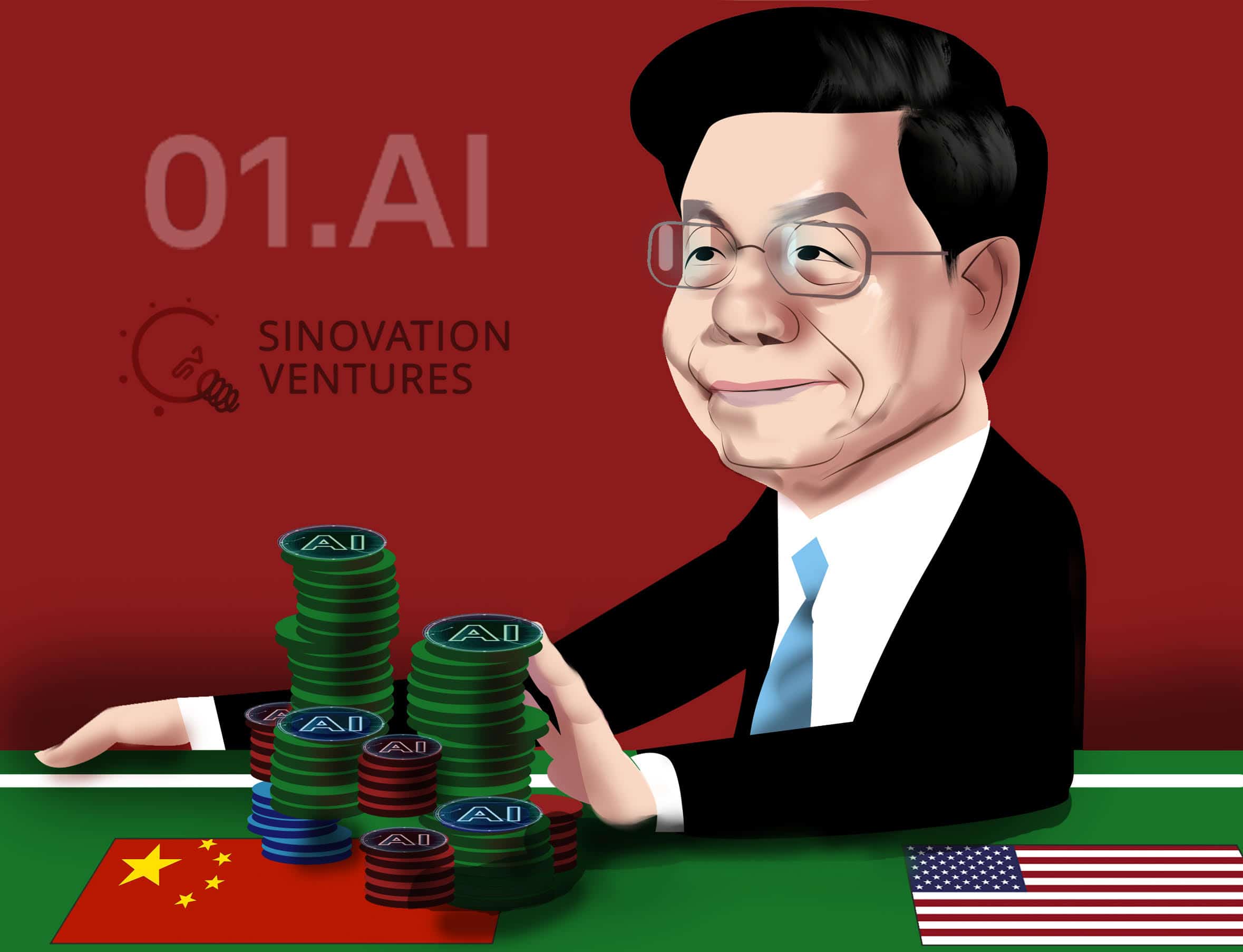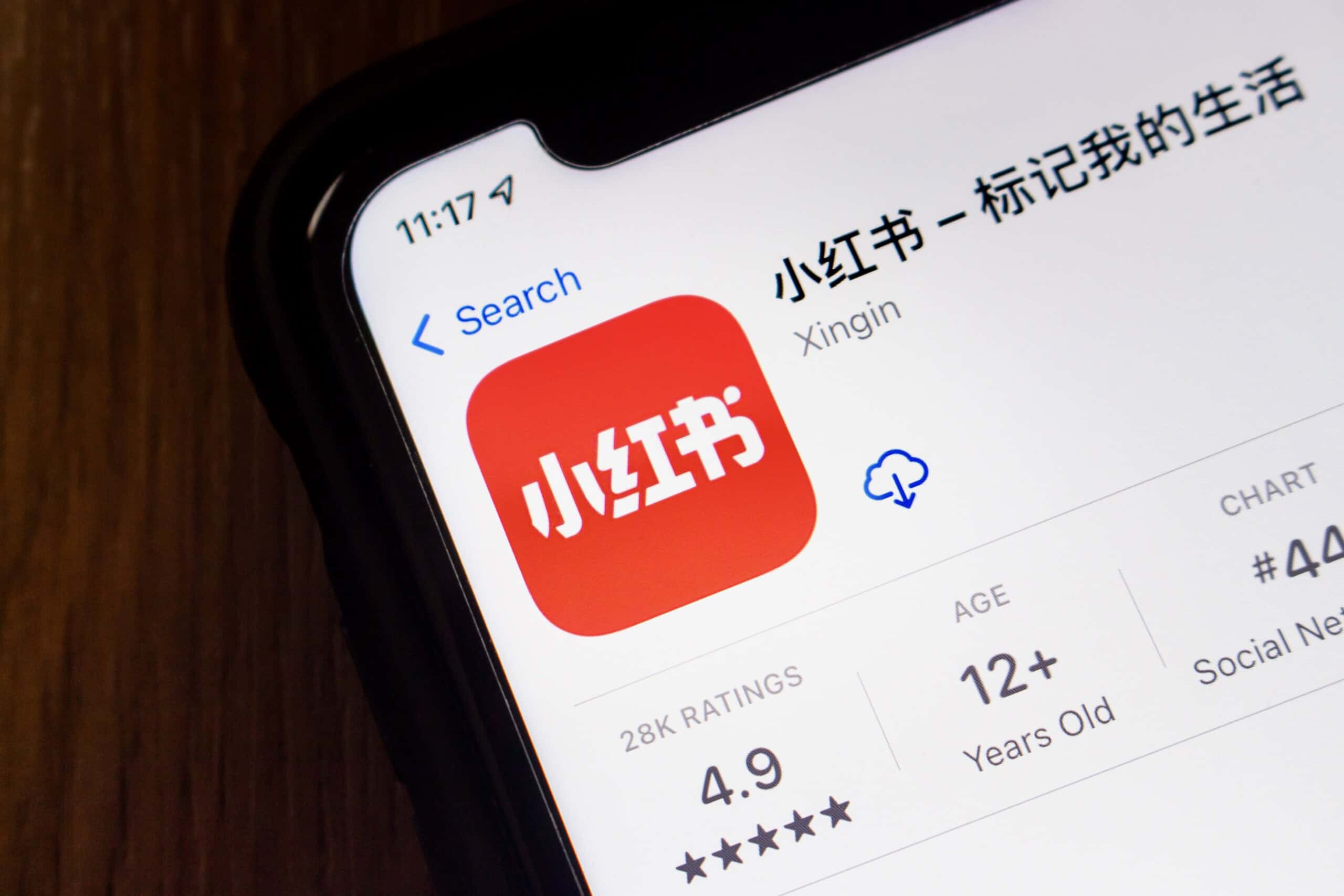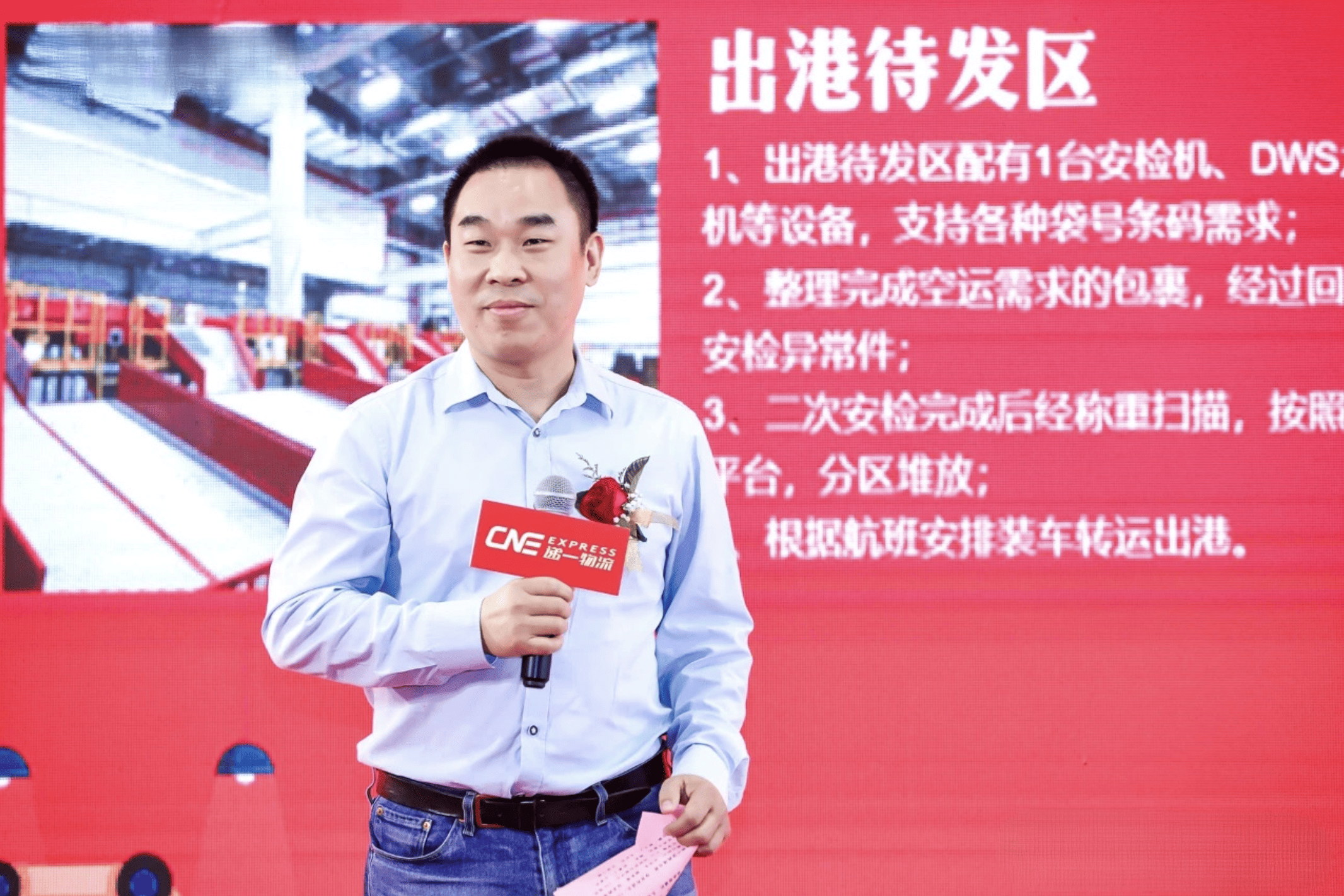
Despite U.S. officials’ calls for more supply-chain scrutiny over big fast-fashion and e-commerce brands like Shein and Temu, consumers across the nation haven’t exactly reined back their use of the sites. Temu’s mobile application amassed 10 million downloads in April alone, according to data from analytics firm Sensor Tower, and has consistently topped Apple and Google’s app store charts in the last few months.
One link in the chain that has escaped much attention so far is the packaging companies that help get Temu and Shein orders to customers in the U.S. and elsewhere. That’s where CNE Express comes in: you’ll likely find its logo (递一物流) on any Temu package shipping label. Other e-commerce giants like Amazon, AliExpress, and Wish have relied on CNE’s services to get their goods from factory to consumer.
This week, we take a look at CNE Express’ story so far, including its global goals, and potential hurdles ahead as it becomes entangled in the clampdown on fast-fashion’s forced labor practices.
DELIVERING THE DREAM
Founded in 2003 by Min Hu, CNE Express was initially funded with 15,000 yuan (around $2,100) of startup capital, according to an interview published in Chinese in 2019 by CNE, via Chinese media outlet Sohu.com.
After initially outsourcing its delivery services, CNE set up its own service following an incident in which goods were lost in transit to the U.K., costing the company thousands of yuan in fines.
CNE’s expansion progressed steadily over the years, with Hu developing relationships with couriers in Europe, Australia, and Japan. In 2015, Hu had “been thinking about whether it was better to buy a Ferrari or a sorting machine”: luckily for CNE, he decided to go with the latter, investing just under $800,000 into small package sorting equipment for the company’s Shanghai warehouse.

By the end of 2019 CNE’s annual turnover exceeded 1 billion yuan (144.8 million), according to a keynote speech made by the company’s chief marketing officer Zhu “Edward” Xiaohu two years later. It has become an important player in a fast-growing market: China’s cross-border e-commerce volumes doubled in value to reach just over $300 billion in 2022, up from $151 billion in 2018, according to a Chinese Customs Administration official.
During its latest funding round in 2021, CNE Express received an unspecified funding from Chinese venture capital funds including Eastern Bell Venture Capital, Northern Light Venture Capital, Capital Nuts, and Dinglin Capital, according to Pitchbook.
The company currently manages several pickup sites and branches across China, and facilitates delivery to destinations across North America, Europe, South Asia, and Latin America. In the last few years, CNE opened a second intelligent sorting center in Jiaxing, increasing its overall processing capacity to two million shipments per day.
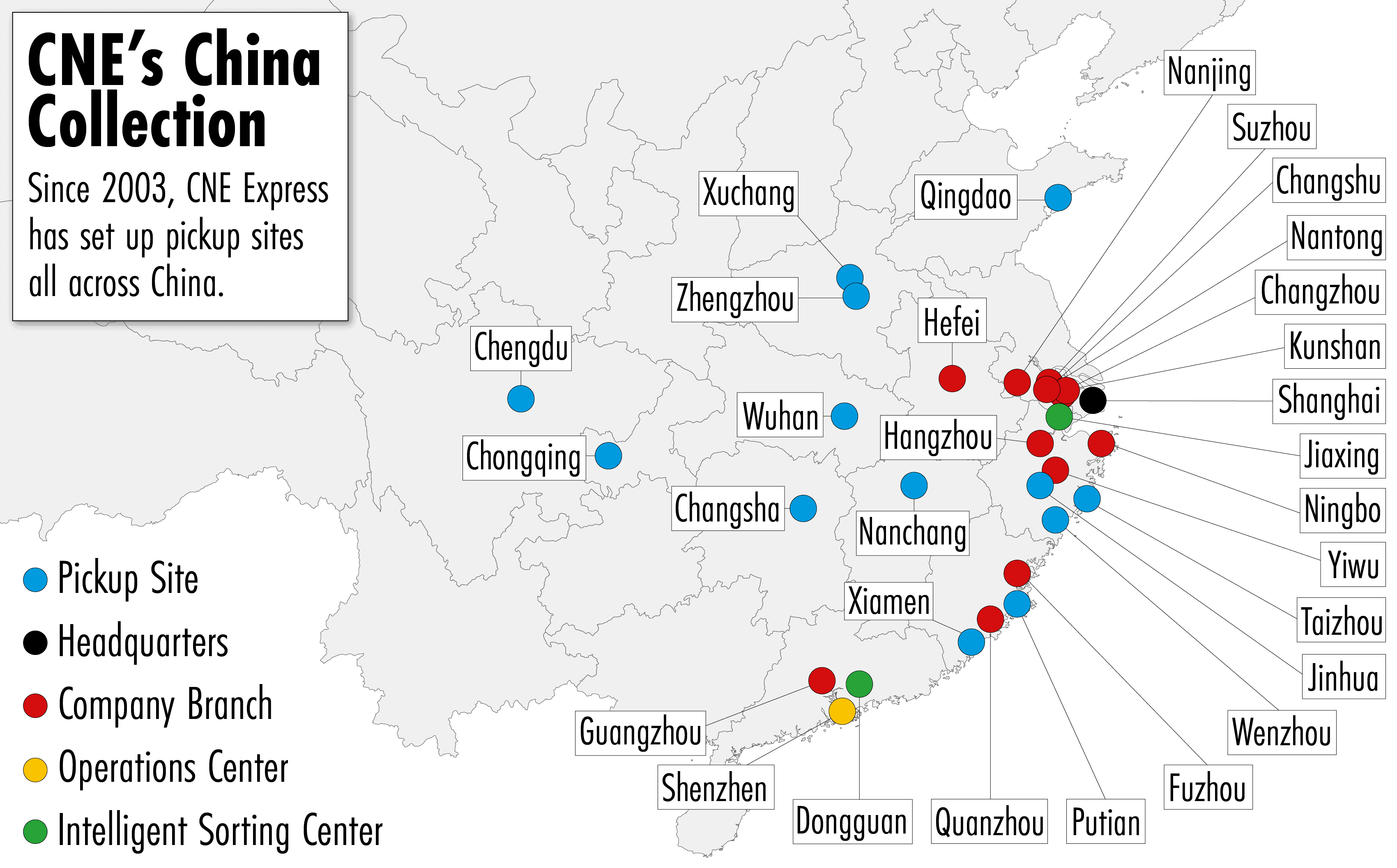
CNE is most active on Weixin, frequently posting articles analyzing various global markets and providing suggestions for sellers as to what sectors are gaining popularity. It also promotes its services and special offers on Douyin, Weibo, and Facebook, with one particular employee – Edward Zhu – taking most of the spotlight. Zhu regularly appears in CNE livestreams to discuss China’s cross-border e-commerce industry, and has represented the brand at large-scale events including China’s Cross Border E-Commerce Fair, held earlier this year in Shenzhen.
LOSING TRACK
Despite efforts from CNE employees to push forward a positive social media presence, its reputation online has been marred by customer complaints about poor parcel tracking systems and excessive shipping times.
On top of this, CNE’s eagerness to show off its partnerships with big Chinese runs the risk of attracting closer attention, as organizations across the world ramp up scrutiny of Chinese fast-fashion and e-commerce companies’ supply chains.
CNE’s website stipulates that certain items, like firearms and explosives, are prohibited from being delivered. However it makes no reference to items that may violate laws such as the U.S.’s Uyghur Forced Labor Prevention Act, something of which CNE’s partners have been recently accused.
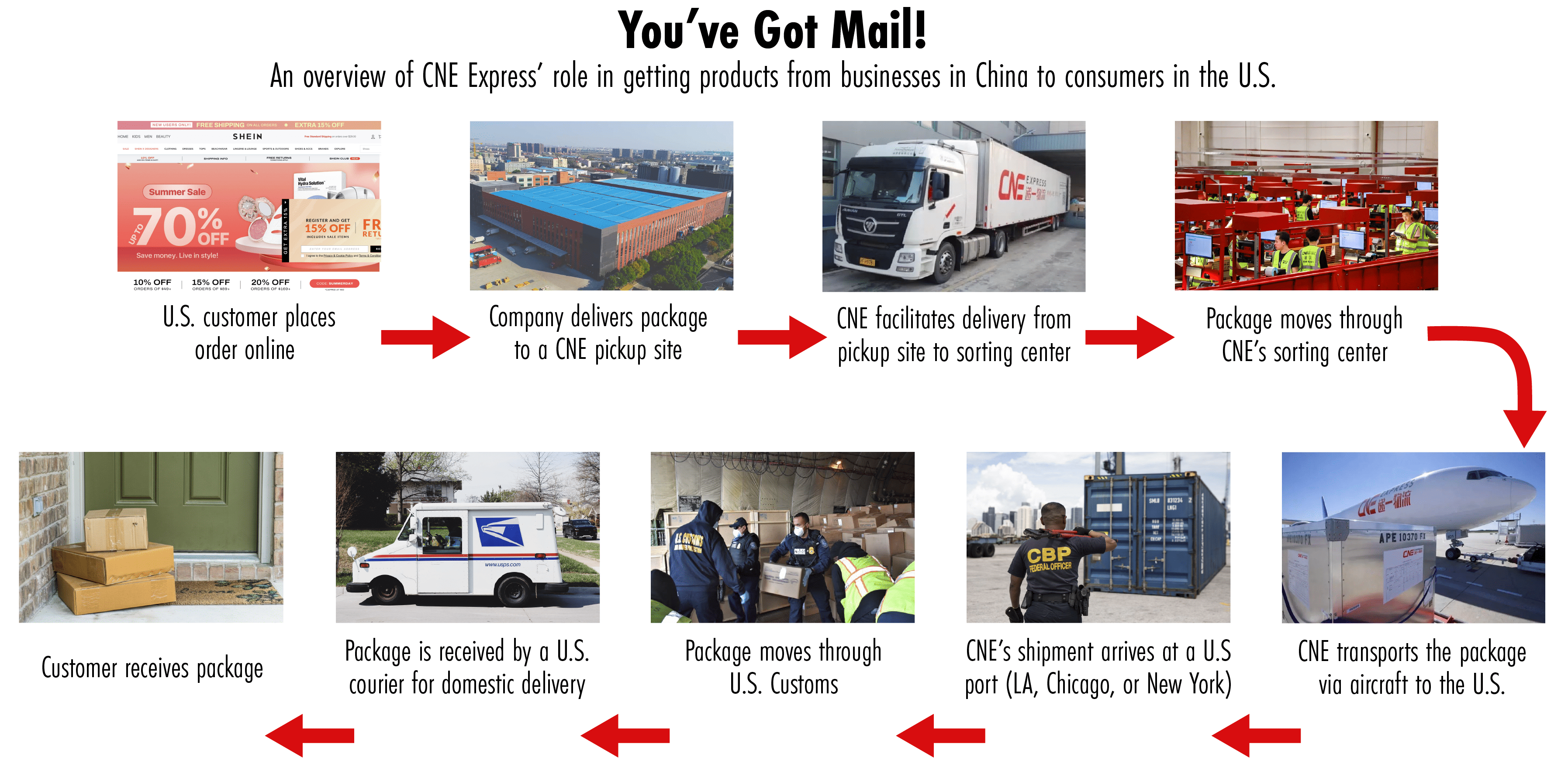
Chris Pereira, president of consulting firm North American Ecosystem Institute, that helps businesses enter the Chinese market, suggests that both sellers like Shein and delivery firms like CNE should shoulder responsibility for the contents of packages that come to America. He likens CNE’s position to that of Twitter with regard to content creators that use its platform.
“The courier and or logistics companies have a major part to play in maintaining compliance with laws, and that’s part of what Chinese companies work on with logistics companies,” says Pereira. “Smaller companies, or even larger companies in China aren’t necessarily going to be experts in compliance in the U.S., so the responsibility lies quite heavily on logistics companies.”

Ella Apostoaie is an editorial associate at The Wire. She is a 2021 graduate of Wellesley College, where she majored in East Asian Studies, with a primary focus on Chinese history and politics. Ella grew up in Norwich, England and is now based in the Boston area.

